Eco-Heroes
Sustainable farming: How to change your community by yourself
6 July 2023
By Kai Chuan Tey
A local young lady called Ira Syahriani, who just graduated with a biology major, established Dongan Markobun to introduce sustainable agriculture practices to the local farmers and break the norm of “farmers earning very little” in her hometown.
Did you know that the largest volcanic eruption in the world happened in Indonesia? Lake Toba in North Sumatra, Indonesia was once an active volcano. The soil there is so good that more than 80% of the people there earn their livelihoods from agriculture.
For countries like Indonesia, farming should be able to reduce poverty three times higher than industrial and service sectors. But just 200km South of Lake Toba is Mandailing Natal regency, where almost half of the population live in poverty.
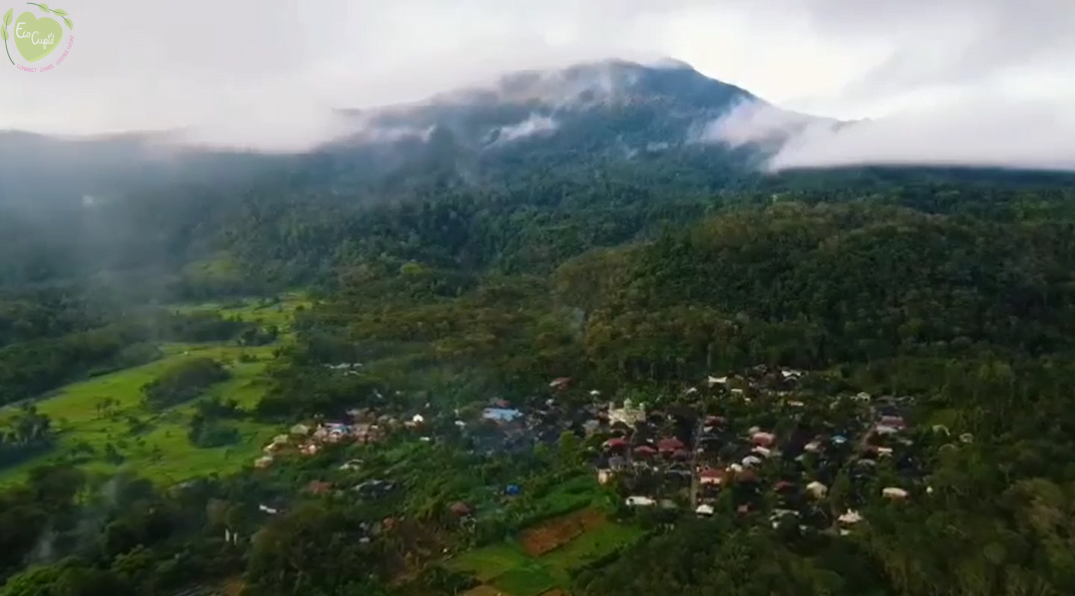
The First Chapter of Dongan Markobun
Ira Syahriani is a local biology graduate who fell in love with plants since her first year of college. She explores the world of plants through field trips, research work, and academic writing. To Ira, the diverse evolutionary history, ecology, and purposes of plants to humans are very fascinating.
After graduation, Ira returned to her home village, Panyabungan Kota. When she explored her village, she noticed unusual crop failures grown by farmers. The volcanic soil in North Sumatra should be very fertile. After talking to farmers, she realised that farmers in Mandailing Natal have been struggling to maintain their livelihoods. Fertiliser prices have doubled due to post-pandemic inflation, crops are failing due to pests and diseases and incompatible conditions exacerbated by climate change. Some farmers themselves even burn leftover rice straws, worsening the air pollution.
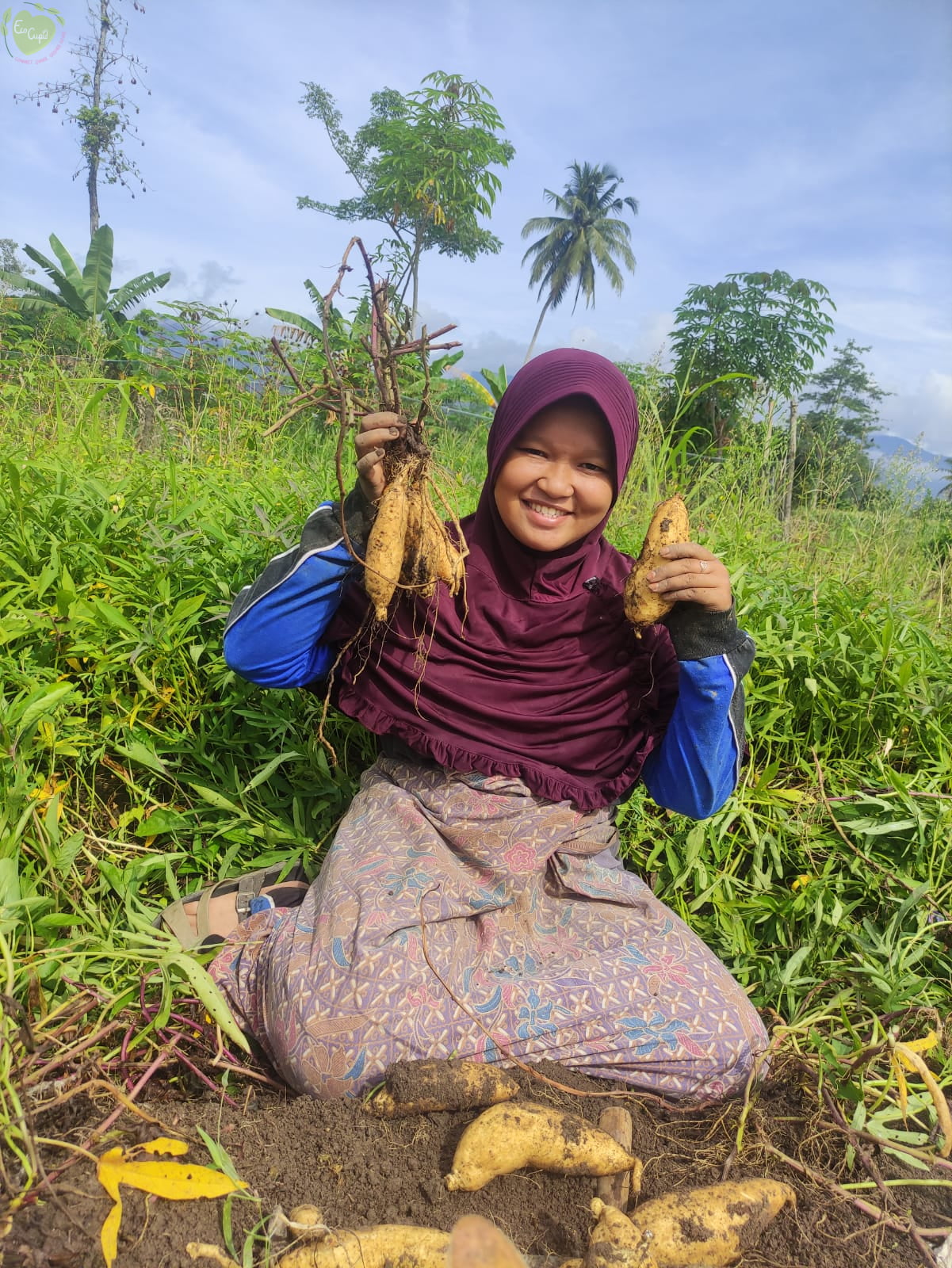
How to Help Local Farmers, the Dongan Markobun Way
Believing her community could do better, Ira started Dongan Markobun, a farming education project for rural farmers. Its name was derived from the Mandailing language, which means “the friend(s) of gardening”.
Currently, half of Indonesian farmers are smallholders, earning an average of US$3.2 per day, which is only slightly above the poverty line (US$2) set by the United Nations. In Panyabungan Kota, the majority of the villagers rely on farming as their primary source of income, often depending solely on a single crop.
Through Dongan Markobun, Ira wants to introduce climate-smart or sustainable agriculture to low-income farmers in Mandailing Natal through education. So far, Ira has developed a program that teaches farmers how to make organic pesticides and fertilisers. These little components can increase yield and save costs, whilst reducing the amount of agricultural waste burnt.
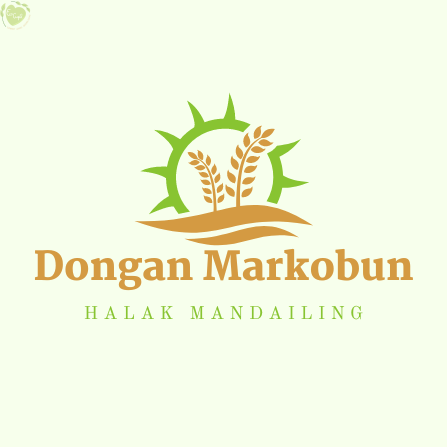
“These programs are not the panacea that can make the farmers’ rich all of sudden but they can ensure a sustainable and healthier agricultural environment in Panyabungan Kota,” Ira shares.
Ira uses her knowledge of plant biology to make organic pesticides. She uses natural and local ingredients such as bandotan weed (Ageratum conyzoides); lemon grass (Cymbopogon citratus); white bottom (Allium sativum); betel (Piper betle) and a mixture of various spices such as cinnamon (Cinnamomum verum), clove (Syzygium aromaticum), and red ginger (Zingiber officinale).
Ira explains that she makes organic fertiliser from plant-based waste such as fermented straw, stale rice, rice water, and even animal waste like chicken manure. The reason why Ira teaches farmers to use these materials is because they are easy to make. For example, liquid organic fertilisers can be produced by mixing spoiled rice and water in a sealed container and leaving it for one month.
“You can directly apply the fertilisers, be it solid or liquid form, to the crops just like how any other fertiliser works,” she adds.
Ira is still testing her fertilisers and pesticides to grow common local crops such as tomatoes, chillies, and rice in hopes of good results to convince farmers to follow her methods.
She also wants to develop another program where she can teach the farmers agroforestry techniques. One of them is companion planting which involves planting different crops close together to maximise space and productivity, improve soil quality, and counter pests. However, finding the right pairings of local plants takes time for trial and error.
But she admits that she has too much on her plate and will focus on perfecting her fertilisers and pesticides first.
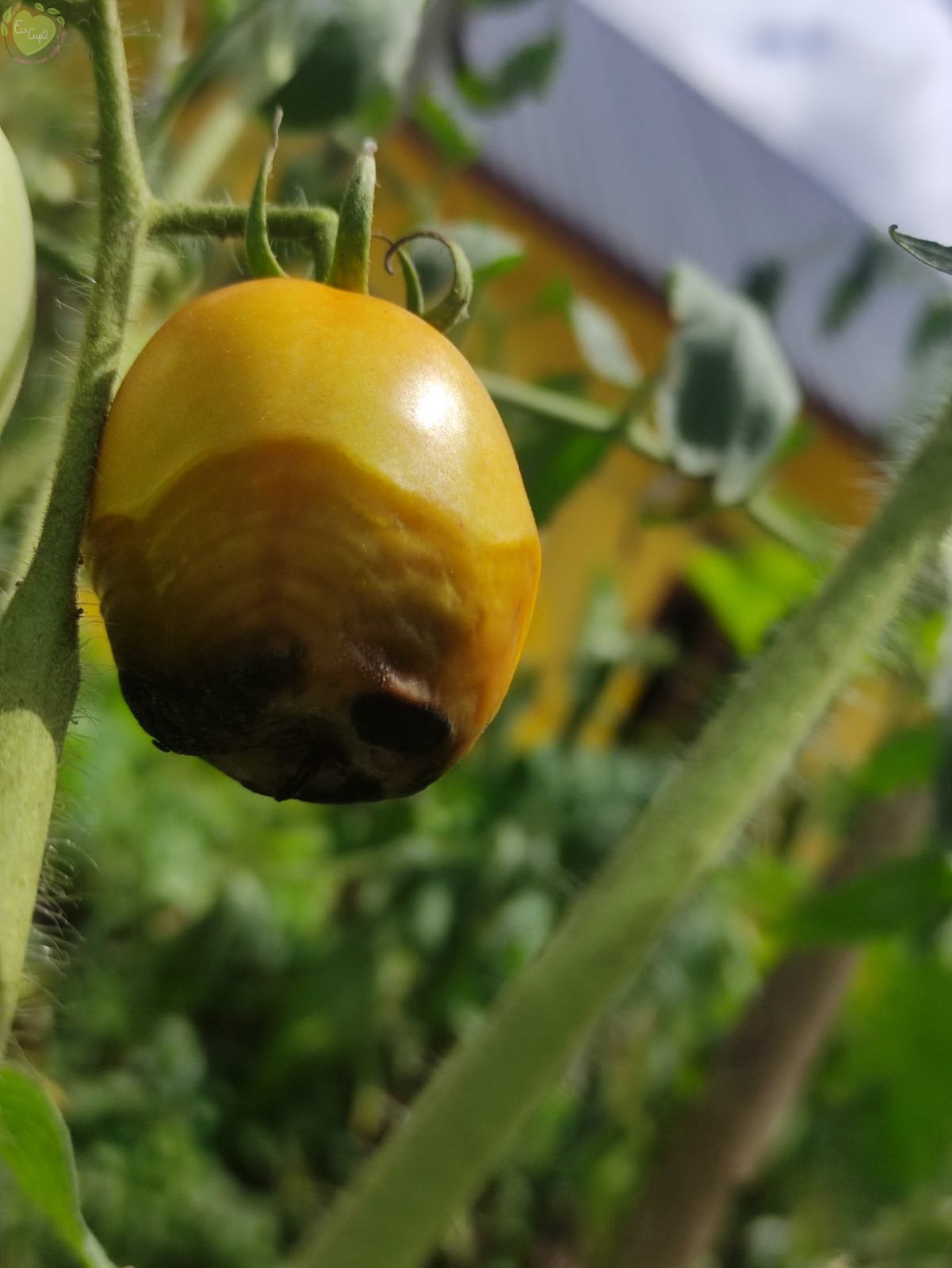
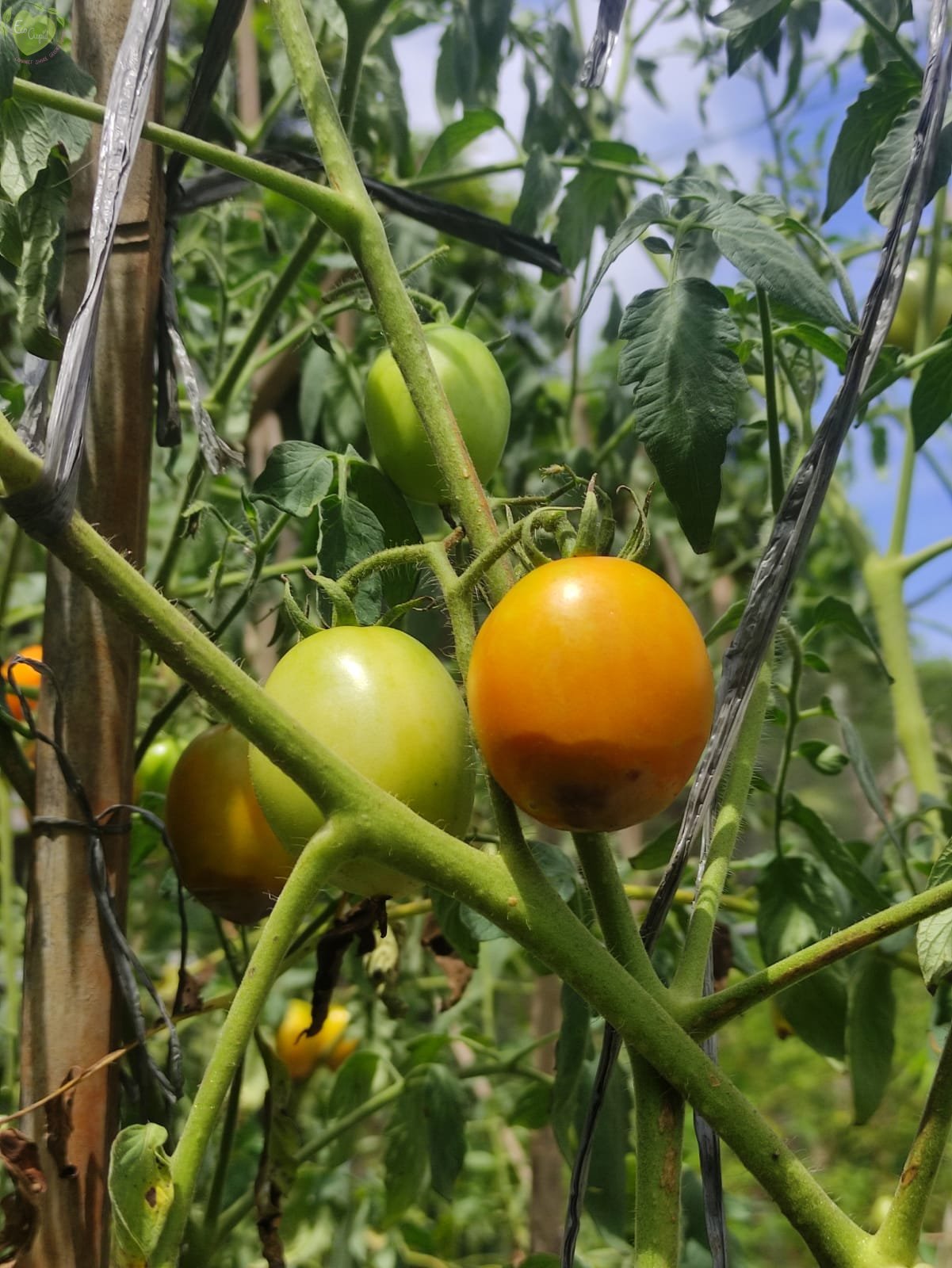
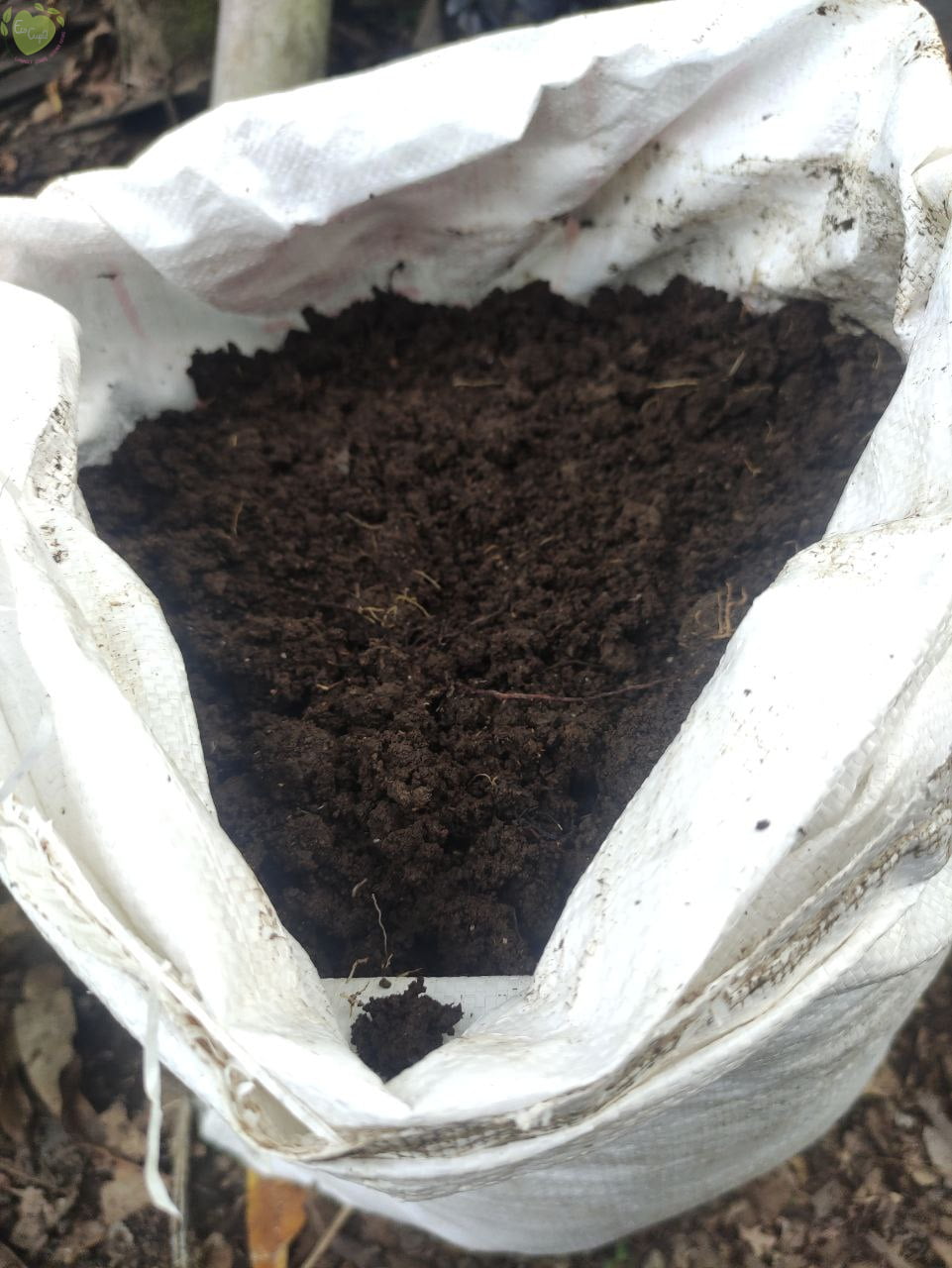

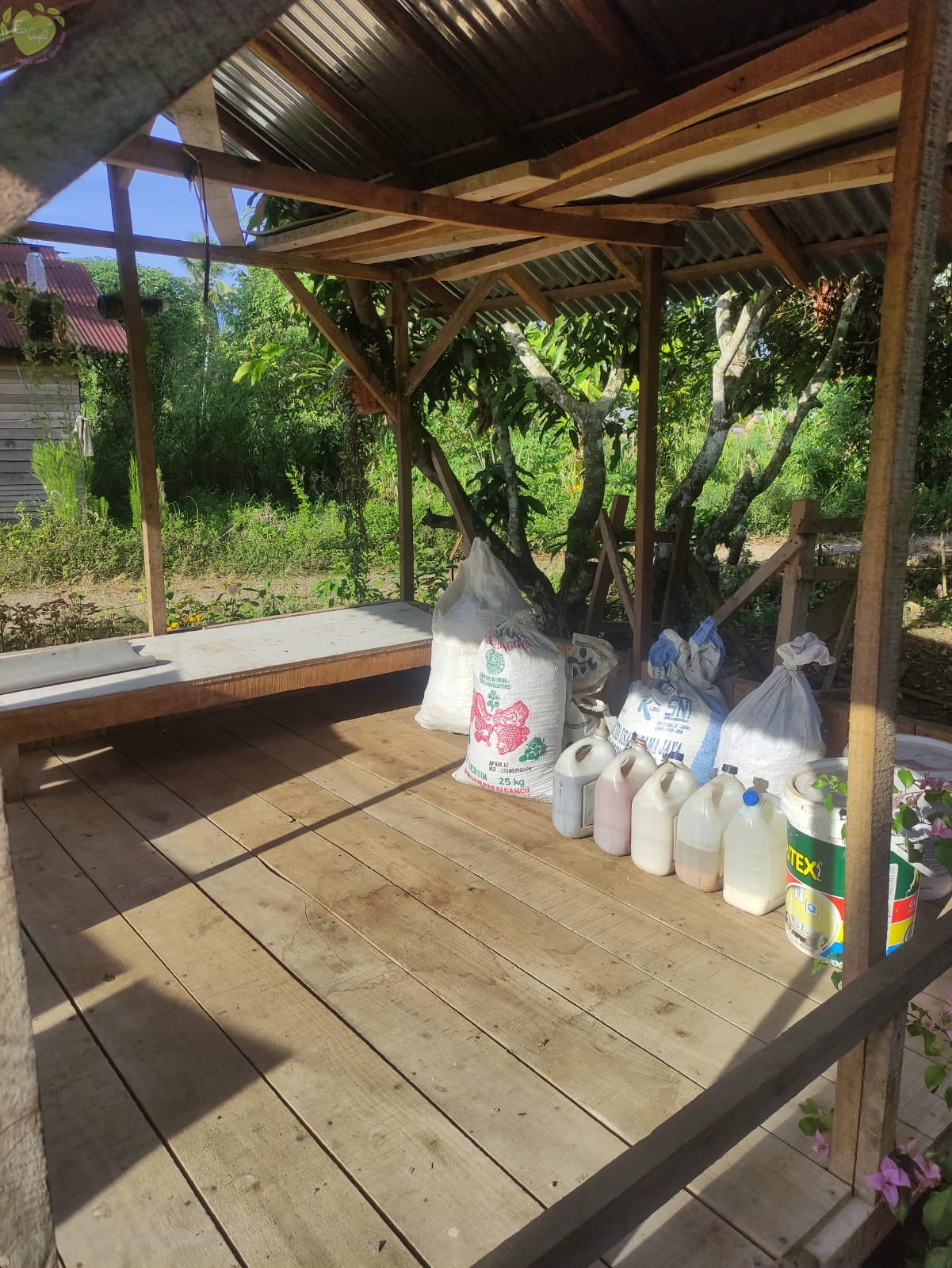
Moving Forward
Normally, developing these kinds of programs consumes lots of brain power from a team of people. However, to EcoCupid’s surprise, these are all done by Ira herself! She wears many hats in Dongan Markobun as its sole founder, its secretary, treasurer, social media manager, and its only current member. It is very impressive that a fresh graduate can achieve so much. According to her, the reason she can possess so much practical knowledge is that she has been practising gardening in her backyard with her mother as early as primary school, on top of reading a lot of books with gardening knowledge and attending numerous online conferences regarding sustainable farming practices during her university years.
However, Ira believes she still has a long way to go in terms of improving Dongan Markobun’s credibility, financial capability, and reputation.
“For now, I can still shoulder the cost of developing these programs on my own because my parents support me a lot and the materials I need for making fertilisers and pesticides are mostly available in the field or nature itself. But I have to upgrade my current blog to a more reliable platform.” Ira adds.
She has also learned to edit videos and design social media posts on her own. She says, “It makes me very happy to be more tech-savvy but this will not make me go far as I ultimately would need a dedicated team to help with my content creation.”

Hence, nowadays, she has been asking for help from villagers around her age, including university graduates, to not only manage Dongan Markobun’s social media platforms but also persuade the farmers in Panyabungan Kota to consider Dongan Markobun’s agricultural advice.
“The farmers in my hometown are very reluctant to listen to me because I am merely an undergraduate and they think it is troublesome to adopt my suggestions in farming,” Ira adds.
While trying to recruit people into Dongan Markobun, she is also applying for a master’s degree with scholarships at the Bogor Agricultural Institute.
“Although it might sound too wishful, I can use the scholarship to upgrade Dongan Markobun’s website and my villagers will trust me more when I have more knowledge,” Ira says.
Nowadays, Ira shares her progress on developing these programs and her agricultural knowledge to several online platforms. However, her primary focus is still on a blog because she can upload the detailed processes of making fertilisers and pesticides there.
Ira’s final step would be contacting the local agriculture department to receive funding or more media exposure so she can involve other villages in Mandailing Natal to embark on sustainable agriculture. However, this will be done after she has a team of volunteers and the programs that she develops have been adopted by the farmers.
“I don’t know how long all these steps will take, but I will just try my best to move forward,” Ira shares.
(Edited by Amanda Tolentino & Bryan Yong)
References
Christiaensen, L., Demery, L., & Kuhl, J. (2011). The (evolving) role of agriculture in poverty reduction—An empirical perspective. Journal of development economics, 96(2), 239-254.
Novita, D., Rinanda, T., Riyadh, M. I., Rajiah, N., & Fitri, A. (2022, June). Mapping agricultural superior commodities area in North Sumatra Province. In IOP Conference Series: Earth and Environmental Science (Vol. 977, No. 1, p. 012054). IOP Publishing.
Siregar, E. S., & Batubara, I. (2022). The Effect of Unemployment on Poverty In Mandailing Natal. Adpebi International Journal of Multidisciplinary Sciences, 1(1), 120-125.
Tabbassum, R., Naveed, M., Mehboob, I., Babar, M. H., Holatko, J., Akhtar, N., … & Mustafa, A. (2022). Comparative Response of Fermented and Non-Fermented Animal Manure Combined with Split Dose of Phosphate Fertiliser Enhances Agronomic Performance and Wheat Productivity through Enhanced P Use Efficiency. Agronomy, 12(10), 2335.
Zhou, Z., Zhang, S., Jiang, N., Xiu, W., Zhao, J., & Yang, D. (2022). Effects of organic fertilizer incorporation practices on crops yield, soil quality, and soil fauna feeding activity in the wheat-maize rotation system. Frontiers in Environmental Science, 10, 2292.
Our featured Eco-Hero
Dongan Markobun is a biology graduate’s self-made sustainable agriculture project supporting local and rural farmers. Based in Mandailing Natal, Indonesia, Dongan Markobun helps local small-scale farmers improve their agricultural output and become more resilient towards climate change. You can reach out to them at https://donganmarkobun.blogspot.com/
This article was produced with support from YSEALI SEEDS for the Future grant 2023.


Kai Chuan
Kai Chuan is a fresh environmental science graduate from Malaysia. He is passionate in corporate sustainability, urban planning, natural-based solutions, and anime. He has been active in environmental journalism since 2021 to effectively communicate with the public on environmental issues, which is essential in participatory decision-making processes.
